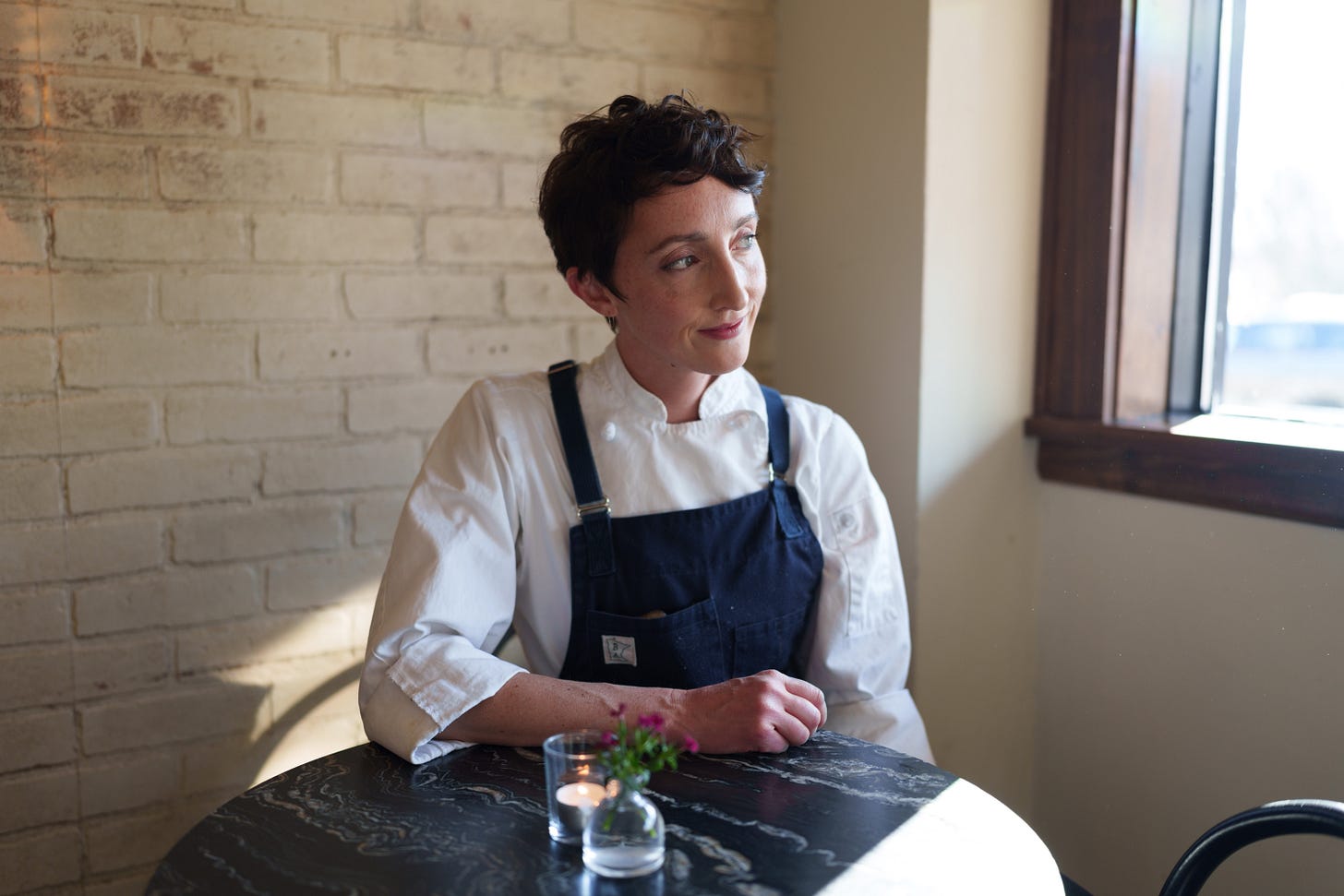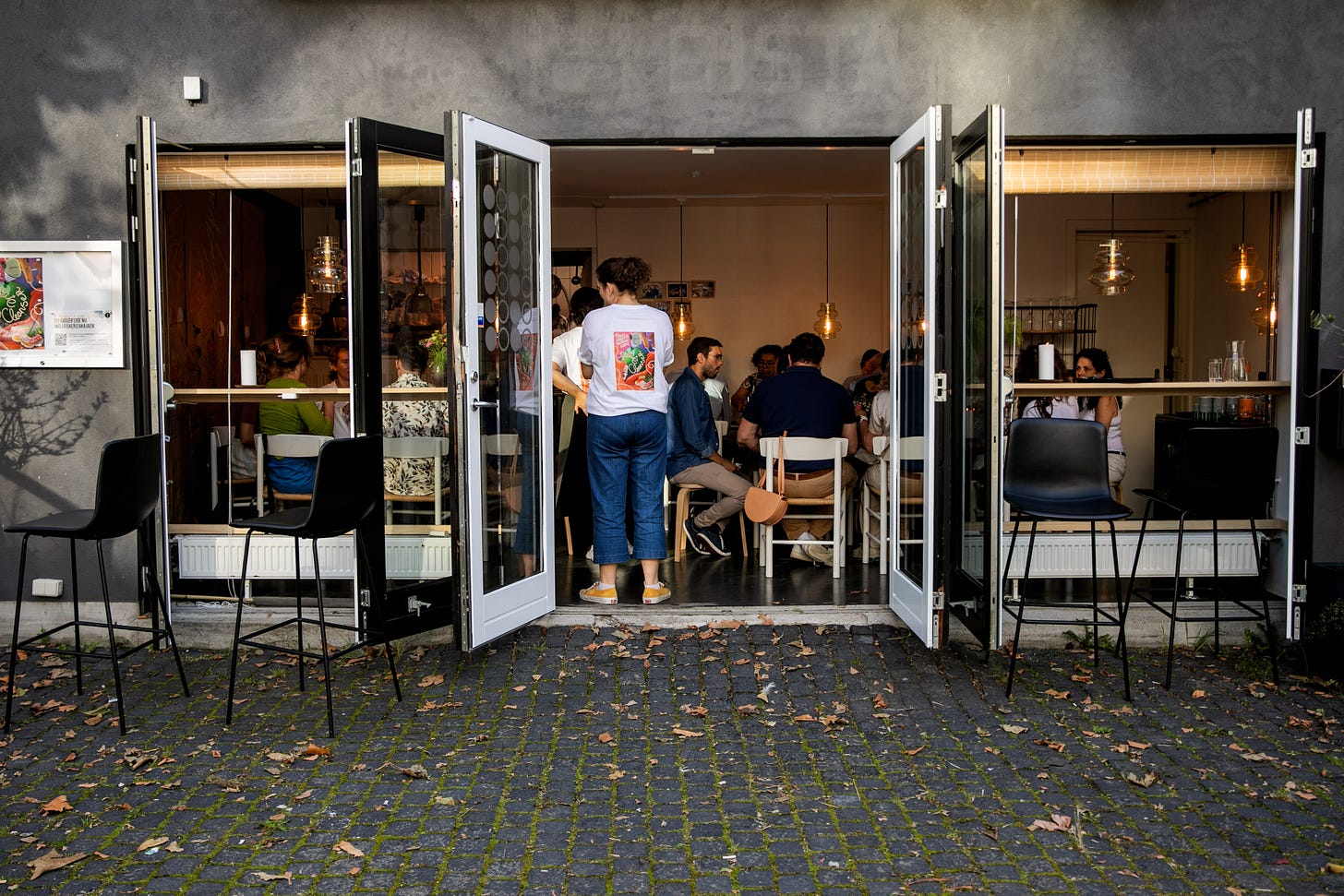The Economy of Desire 🌱
MAD's newsletter relaunches with a long read on dynamic pricing, an interview with Myriel chef Karyn Tomlinson, and the latest on what we're up to here at MAD
LONG READ
The Economy of Desire
Is this the moment when restaurants finally adopt dynamic pricing? And if so, what does it say about us?
There is this bar in San Diego, California that used to game the price of its tequila shots. In 2016, the Blind Burro (we don’t name these places, folks, we just report them) placed a digital board that looked like something you might find on the floor of the stock exchange over the bar, with the prices of its numerous tequilas listed. When a bunch of guests ordered, say, a shot of Espolón Blanco, the price of that brand would creep up, while the José Cuervo left to languish would go down.
One bar’s goofy stunt is someone else’s ingenious economic solution. Dynamic pricing—also known as variable pricing or surge pricing (or “revenue management” if you’re into corporate euphemism and “price gouging” if you’re into the opposite)—refers to the practice of adjusting prices to consumer demand. It’s what The Blind Burro was doing with its tequila board, and it’s a method that other industries with fixed capacity have employed for a long time. Hotels and airlines have been doing it since the 1970s. Uber was basically founded on the idea. Even Disneyland charges more on weekends.
Restaurants have long resisted this trend. But in the wake of the pandemic, that resistance seems to be eroding. In part, that’s due to rising food costs and labor shortages that have restaurants scrambling for ways to increase revenue. In part, it’s because the shift to digital menus makes better prediction and tracking possible. And in part, it’s due to the rise of new start-ups founded on AI-driven promises to monetize everything from Saturday night bookings to that cozy corner booth.
Finland’s biggest pizza chain adopted dynamic pricing on delivery fees nationwide in 2021. A couple of weeks ago, Stonegate, the UK’s largest chain of pubs introduced it on pints. And in the last two years, the percentage of restaurants using it on Tock, the platform that pioneered pre-paid bookings, has grown to nearly 40%. The trend has become pronounced enough that Nick Kokonas, co-owner of The Alinea Group and Tock’s co-founder believes dynamic pricing is now inevitable. “[It’s] all going to be geofenced to your mobile device and priced based on demand and availability,” he says. “It will seem odd that pricing was ever fixed.”
If Kokonas is right, and we’re at a tipping point, the implications could be profound. Much of the debate around dynamic pricing has been framed around the question of whether diners will accept it or not, and therefore, whether it represents opportunity or risk for restaurants seeking to increase their revenue streams. But by fixating on will-they-or-won't-they, we miss the bigger issues that dynamic pricing raises: questions about capitalism, about the meaning of hospitality, even about human nature itself.
Are we ready for economy and business class in dining? Read the full article.
ACADEMY ALUMNI
5 Questions with Karyn Tomlinson
Each month, Digest interviews one of MAD Academy’s alumni. First up is chef Karyn Tomlinson, who worked at Fäviken in Sweden and Corner Table in Minneapolis before opening her first restaurant, Myriel, in 2021 in St Paul, Minnesota and quickly turning it into a semi-finalist for the James Beard Best Restaurant in the Midwest. Among other things, we talk to Karyn about the importance of recognizing cognitive difference in your staff, and how, when it comes to cleaning, it can be worthwhile to chill ever so slightly out.
When Karyn Tomlinson boarded a plane to Copenhagen to attend MAD Academy in October 2021, things were going so smoothly at Myriel, the restaurant (her first) she had just launched three months earlier, that she almost wondered if the leadership course wouldn’t be a waste of time. But it wasn’t long after she returned that the time at MAD proved its worth. “There is so much excitement and energy at the outset,” she says of opening her own place. “It’s only when the luster wears off a little bit, that you start to realize where your weaknesses are.” Read the Q&A.
NEWS & EVENTS
What We’re Up To
Fall is off to a busy start here on Refshaleøen.
Even before summer was over, MAD hosted its first Alumni Kitchen pop-up as part of the Copenhagen Cooking Festival, where for two nights, a group of five talented and passionate Academy alumni provoked and delighted guests with a delicious meal that also raised serious questions about food systems and how restaurants do business. Check out photos from the event here.
Earlier this month, we hosted our first workshop on psychological safety. Nearly 25 senior staff from 14 different restaurants in Copenhagen joined us, and we were gratified to learn how helpful they found the session. We’ll be holding a second workshop for non-managerial staff on Oct 30. If you’re interested in participating, sign up here.
And save the date: we’ll be holding the season’s first MAD Monday on Oct 23 here in Copenhagen 🍷








Interested in how dynamic pricing would shake out with people seeing it in real time. Its an odd concept in food, another way that monetizing resources can turn hopelessly in the wrong direction.